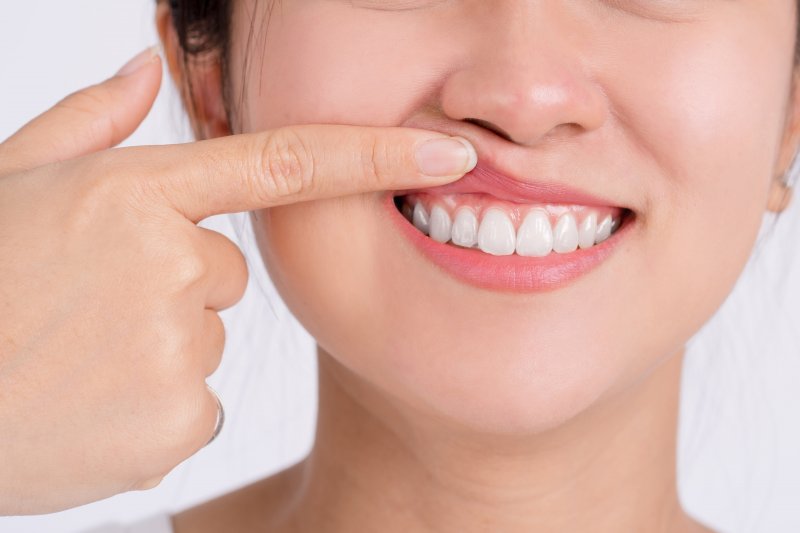
Have you ever heard the phrase “long in the tooth?” It’s often used to describe someone who’s a little bit older, but the phrase actually comes from a rather common oral health problem: gum recession.
In truth, there are quite a few reasons why you might be looking a little bit “long in the tooth.” In the worst cases, this can even expose your teeth roots, which can be deeply uncomfortable.
If you’re curious, here are some of the most common causes of gum recession, and what can be done about them.
Aging
Starting with the origin of that famous phrase, people naturally start to see their gums recede as they get older. As people age their gums may begin to weaken, and the bone structure in the jaw may degrade. Incidentally, this is also part of why older people lose their teeth.
There isn’t much that can be done to stop age-related gum recession, so it’s best to focus on factors you can control, like:
Gum Disease
Gum disease is extremely common—it’s estimated that around 50% of American adults have the condition, and that number only gets higher with age. Gum disease comes with all kinds of problems, one of which is gum recession. Bacteria can damage the gums and bones which, over time, can lead them to shrink.
Tobacco Use
Smoking has no shortage of negative effects on the mouth, and among them, gum recession may honestly be the least of them. That said, the damage that tobacco can do to the gums shouldn’t be overlooked, as it can absolutely lead to serious recession over time.
Bruxism
Bruxism, more commonly known as teeth grinding, puts an enormous amount of pressure on the teeth and gums. Most people do it while sleeping, so they may not even be aware of it, but bruxism can agitate the gums over time. Eventually, that may lead to recession.
Hard Brushing
If you notice your gums starting to recede, you may decide that you want to brush really hard to break up plaque deposits. However, this may actually irritate your gums further, making the problem worse.
If you want to prevent gum recession, the first thing you should do would be to cut out any of these risk factors you may have. Then, take good care of your teeth: brush them with a soft-bristled toothbrush twice a day, floss daily, and see your dentist often.
About Our Practice
At Crovatto & Edwards Family Dentistry, we appreciate what it means that hundreds of families have trusted us to handle their dental care, and we work extremely hard to ensure that their faith isn’t misplaced. We prioritize the experience of our patients above everything else, so we can guarantee that you and the people you love will be able to get the care that they deserve!
If you have any questions about receding gums, we can be reached at our website or by phone at (904) 272-0800.
